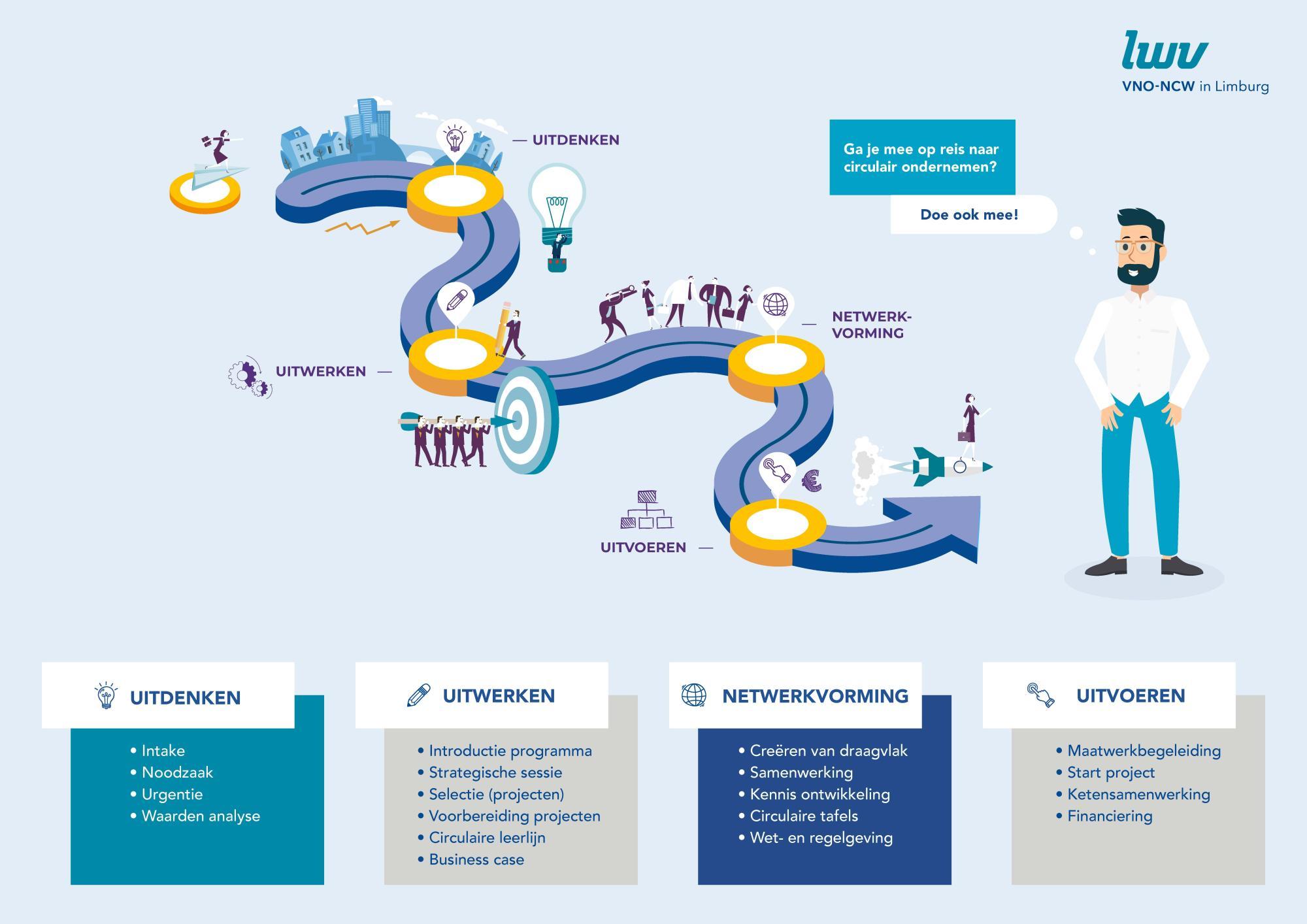The world is changing rapidly and the need to do business more sustainably is becoming increasingly urgent. This realization is behind the new initiative Circular in Business, a program that supports entrepreneurs in the transition to a circular economy.
"We see that rising commodity prices and scarcity are putting pressure on business profitability. Our goal is to provide entrepreneurs with the tools and support needed to implement circular business models to become future-proof," says Sonja Demandt of the Limburg Employers Association (LWV), one of the driving forces behind this groundbreaking project.
Cooperation between key partners
.Circular in Business is a collaboration between Alpha-Pro, Madecircularby, Newtone, Adelmeijer and Hoyng as well as the LWV. Rabobank is also hooked up for financing circular initiatives. "Cooperation is crucial," says Sonja. "Circularity can only be successful if you do it together. Each partner can contribute something from their own expertise. And we frequently seek each other out in that. That's how we can all bundle all the parts in the end."
Roadmap with four essential steps
.The kick-off takes the form of a general kick-off meeting: what to expect; what urgency is at play? First, increasing knowledge about circularity is important. The program is built around a roadmap that includes four essential steps: conceiving, elaborating, networking and implementing. "In the first phase, we identify opportunities and design strategies for circularity," Sonja explains. "Then we develop these ideas into concrete plans, for example by adapting production processes or adding sustainable raw materials. In the third phase, we focus on networking, connecting the right partners and suppliers to work together on sustainable solutions. Finally, we implement these circular plans and monitor progress."

Ten chain collaborations
An important part of the initiative is the establishment of ten chain collaborations in Limburg. These parties will be carefully selected based on their potential to make significant progress in circularity. Sonja explains, "We are looking at companies that are willing to change and the diversity and impact of the sectors in which they operate. The goal is to create inspiring examples and show others what is possible."
CSRD commitment
With the advent of the Corporate Sustainability Reporting Directive (CSRD), companies are required to be more transparent about their sustainability performance. This makes it all the more important that suppliers - often smaller companies - are also involved in the transition. "Circular in Business helps these companies meet the new regulations by, among other things, supporting them in developing circular business models," Sonja said.
Circular Goals
The national sustainability goals reach far: using half as many raw materials by 2030 and a fully circular economy by 2050. "It really is a huge task," says Sonja. "But we are convinced that sustainability and profitability can go hand in hand. "By providing entrepreneurs with the right knowledge, networks and financial resources, we hope to keep bringing them one step closer."